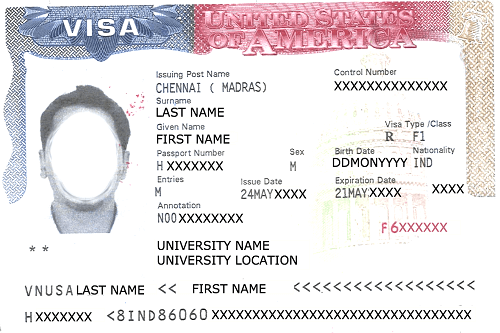Table of Contents
Introduction to the best country in the world to study abroad
The idea of studying abroad can be fascinating yet challenging. Selecting the best country in the world for your education is no easy task. There are many factors you need to take into consideration and we’re here to take you through each step of the process. Read on to know how to shortlist the best countries in the world for studying abroad!
Why is choosing the right country important?
The ‘right’ country is the destination that will give you exactly what you’re looking for, be it longer course duration, research opportunities, jobs, or an easy transition to Permanent Residency. Choosing a destination that fits your needs perfectly will shape your career and life abroad. That’s why it’s important to only select the best country in the world for your education.

How to choose the right country
Let’s get straight to the 7 factors that will help you choose the best country in the world for studying abroad-
1. What is your field of interest?
Selecting the course of your interest should be the top priority. When you understand which field/course you want to do, shortlisting the country will be easier.
To do so you need to-
- Know where your interests lie.
- What skills/activities allow your personality to shine.
- Knowing your strengths and weaknesses can build you.
- Have an open mind when it comes to choosing a field.
Different countries offer different costs and programs for various fields. Based on the course, you can make a better decision as to which destination best fits your goals.
2. What is the visa process for the country?
Since most students studying abroad want to settle in the country, it’s important to know if its rules and regulations will allow it. With COVID-19 in the picture, the process might look different for international students going abroad.
Some countries like Canada have an immigration-friendly work permit program along with a post-graduation work permit program. Getting a PR in countries like Canada, Australia, Germany, New Zealand is a lot easier.

3. How affordable is the country?
Study abroad programs aren’t always affordable. So it’s important to consider the overall expenses involved. It’s important to find the ROI (return on investment) on your education in a country abroad. As a student who will spend a lot of time, effort, and money on their education, this is a crucial step.
For this, you must take into account-
- Tuition fee
- Accommodation and food costs
- Charges for taking entrance test/exams (GRE, TOEFL, GMAT, IELTS)
- Cost of transportation
- Miscellaneous expenses like costs of buying books, paying for WiFi, laundry bills, etc.
- Scholarships offered
The expense of studying abroad in a country will vary depending on the location, courses, and university you choose.
4. Are there any scholarship programs?
There is a multitude of scholarships international students can apply for, in any country. But the best ones are those offered by the government of the country itself. These scholarships can cover your entire tuition fees, accommodation costs, etc. So make sure to explore your options with this factor in mind. This way, you won’t be skipping out on countries due to financial reasons.
5. How safe is the country?
With crime rates increasing the world over, parents are concerned about their child’s well-being. Pick a country that has lower crime rates and choose universities that are in safer areas. Universities have on-campus accommodations that include higher security for students with strict guidelines.
Take factors like transportation, emergency resources, and 24×7 support into consideration while selecting a country. Connect with students who have traveled to your desired location and get to know more about safety.

6. Can you find a community?
Traveling to another country for education can be a scary experience. But things can become easier when you have a community around you. Even though you may think you know a country’s culture, you may still face culture shock. Find out which country has a stronger community of the people that you identify with.
Initially, this may be useful, as you will have some sense of familiarity. Friendly people, familiar food, and comfortable routines fall under the factors that can make your move a lot easier. This will help you learn and adapt to the culture faster while not being homesick!
Join a community of 20,000+ students studying in various countries across the globe.
7. What is their native language?
English is the most widely accepted language in the world if you count both the native and the nonnative speakers. However, only counting native speakers, Mandarin Chinese is the most commonly spoken language. Understanding the language of a foreign country you will be staying in – be it France, Norway, Spain, or Sweden – is important.
Learning the basics is essential when traveling outside college or applying for a job. Since it can get challenging to constantly use Google translate, it’s better to know and understand bits of the language even before you fly abroad. This will show you respect the culture and are making efforts to learn which will help you fit in better.
However, if learning a new language is not something you’re looking forward to, you might want to consider studying in countries like the US, UK, Australia, Canada, etc.
10 best countries in the world to study abroad

Let’s make this process even easier. With all the above factors in mind, we’ve selected a list of top countries where you can study. These include-
More factors to consider the best country in the world
While we’ve only listed 7 factors above, there are a lot of other things you can look at, while choosing the best country in the world for higher education-
- Geographical location of the country.
- Employment opportunities.
- Immigration policies.
- Standard of living.
- Travel opportunties.
To start the shortlisting process, start by choosing a course that best suits your future goals. Don’t forget to research the best universities in the countries you’ve shortlisted for your course. This will help you narrow down the countries you can study in.
If you still aren’t sure which country is the best for you, don’t hesitate to reach out to us or drop a comment below!
Good luck and happy country hunting!
Read more: 12 colleges most preferred by Indian students.
Key takeaways
- Choosing the right country for studying abroad is pivotal as it impacts your career and future life. The ideal destination should match your personal and academic goals.
- It’s crucial to determine your field of interest as countries offer different courses and costs. This can assist in narrowing down your options.
- Understanding the visa process is essential, especially if you intend to settle after studies. Countries like Canada, Australia, and Germany have more immigration-friendly policies.
- It’s vital to factor in all expenses, including tuition, accommodation, and miscellaneous costs. Many countries offer scholarships which can substantially reduce the financial burden.
- Safety is paramount. Choosing countries and universities with low crime rates and strong on-campus security is advisable. Engaging with existing students can offer insights into safety aspects.
Having a familiar community in a foreign country can ease the transition and combat homesickness. Understanding the native language and culture of the chosen country further enhances the study abroad experience.
FAQs
Q1. What are the main factors to consider when choosing a country for studying abroad?
Answer- Key factors include your field of interest, visa and immigration policies, affordability and scholarship opportunities, safety of the country, presence of a familiar community, and the native language of the country.
Q2. How can I determine which country offers the best return on investment (ROI) for my education?
Answer- To determine ROI, consider the tuition fee, accommodation and living expenses, potential job opportunities in the country, and compare these costs with the quality of education and post-study opportunities the country offers.
Q3. Are there resources or platforms to help me learn the basics of a country’s language before studying abroad?
Answer- Yes, there are several online platforms like Duolingo, Babbel, and Rosetta Stone that offer language courses to help you grasp the basics of various languages before your move.







How can I easily access scholarship in Canada the country of my interest
Hi Najibar,
You first need to understand what types of scholarships exist.
Then pick the ones you’re eligible for, and apply.
While you can easily find this info here.
You can also find a list of 40 study abroad scholarships here.
To share more info, one of our experts will be in touch with you soon.
All the best!